Entry Category: Law
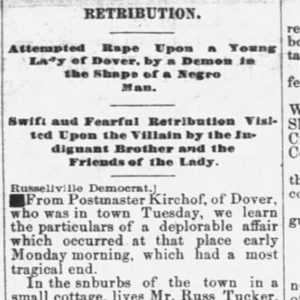 John Hogan Lynching Article
John Hogan Lynching Article
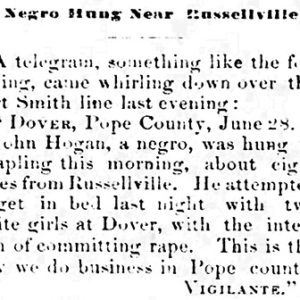 John Hogan Lynching Article
John Hogan Lynching Article
Hogan, John (Lynching of)
Holland, Jim (Lynching of)
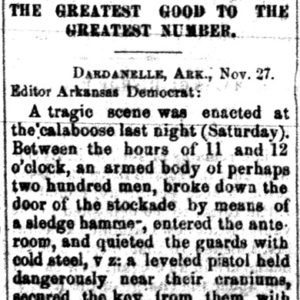 Jim Holland Lynching Article
Jim Holland Lynching Article
Hollingsworth, Perlesta Arthur “Les”
Holt v. Sarver
Holt, Elias (Lynching of)
Holt, J. Seaborn
 Jack Holt Swearing in Dan Flowers
Jack Holt Swearing in Dan Flowers
 Jack W. Holt
Jack W. Holt
Holt, Jack Wilson, Jr.
 Jack Wilson Holt Jr.
Jack Wilson Holt Jr.
 Jack Wilson Holt Sr.
Jack Wilson Holt Sr.
 Jack Wilson Holt Sr. Cartoon
Jack Wilson Holt Sr. Cartoon
Holt, Jack Wilson, Sr.
Holt, Joseph Frank
Homestead Act of 1862
 Cliff Hoofman
Cliff Hoofman
Hoofman, Clifton Howard (Cliff)
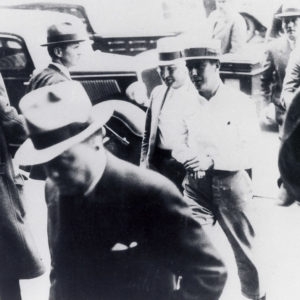 Hoover and Karpis
Hoover and Karpis
Hopkins v. Jegley
 Hot Spring County Lynching
Hot Spring County Lynching
Hot Springs Shootout
aka: Hot Springs Gunfight
aka: Gunfight at Hot Springs
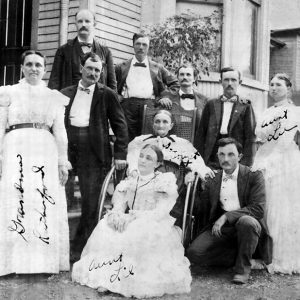 Houpt Family
Houpt Family
 Mr. and Mrs. Houpt
Mr. and Mrs. Houpt
 Houpts
Houpts
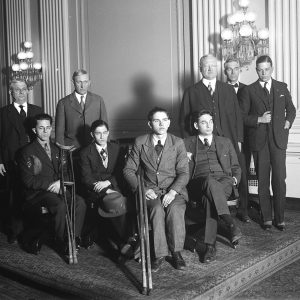 House Committee on Education
House Committee on Education
Housley v. State
Howard County Race Riot of 1883
aka: Hempstead County Race Riot of 1883
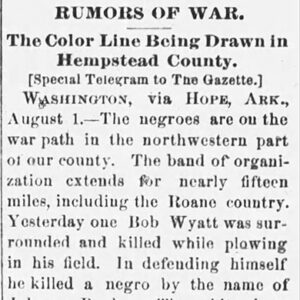 Howard County Race Riot Article
Howard County Race Riot Article
Howard County Reported Lynching of 1894
 Howard Federal Building
Howard Federal Building
Howard, George, Jr.
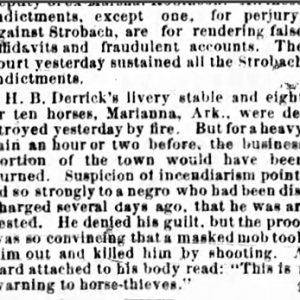 Jesse Howard Lynching Article
Jesse Howard Lynching Article
Howard, Jesse (Lynching of)
Hubbell, Webster Lee (Webb)
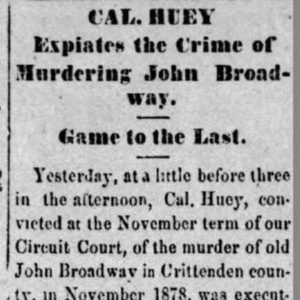 Huey Execution Article
Huey Execution Article
Huey, Cal (Execution of)
 Clint Huey at 1979-80 Constitutional Convention
Clint Huey at 1979-80 Constitutional Convention
Humphreys, Thomas Hadden
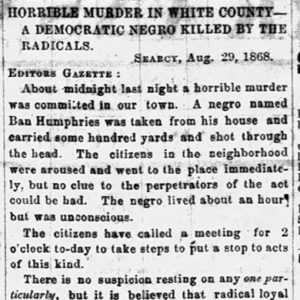 Ban Humphries Murder Letter
Ban Humphries Murder Letter
Humphries, Ban, and Albert H. Parker (Murders of)
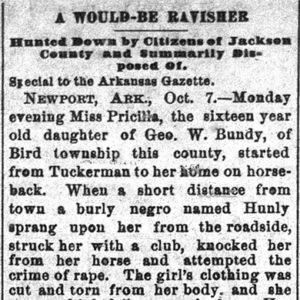 Hunley Lynching Article
Hunley Lynching Article
Hunley, Dan (Lynching of)
Hunter, Buck (Lynching of)
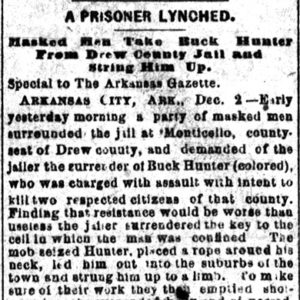 Buck Hunter Lynching Article
Buck Hunter Lynching Article
Hunter, William (Lynching of)
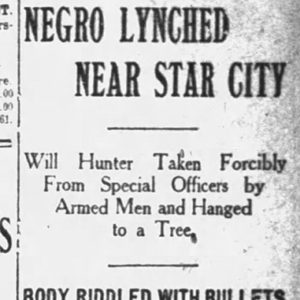 William Hunter Lynching Article
William Hunter Lynching Article




